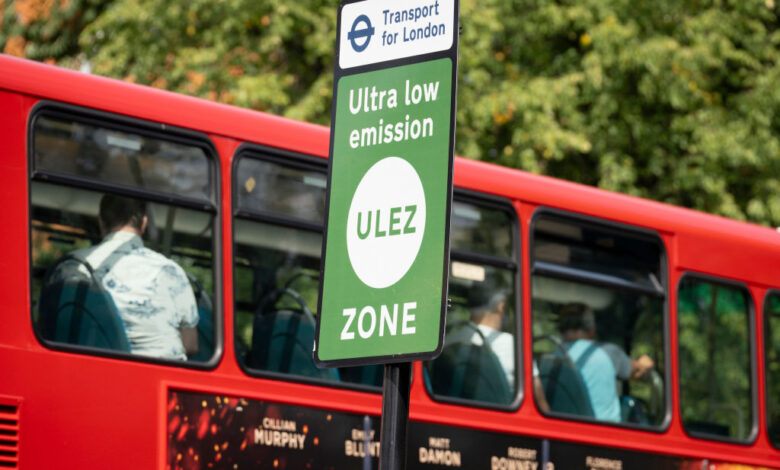
Low emission zones reduce air pollution by targeting highly polluting vehicles. Photo Credit: Richard Baker/Getty Images
EnvironmentHealth EnglandAir Quality Improves – and so Does Mental and Physical Health
Since the implementation of a Low Emission Zone (LEZ) in the heart of London, England’s capital, in 2019, the air quality has dramatically improved, thus having a positive impact on the mental and physical health of millions of citizens.
“Our analysis confirms the effectiveness of LEZ in improving air quality and health—crucial for residents in large cities,” explains Professor Eleonora Fichera. “It shouldn’t be a choice between health and affording schemes like Ultra-Low Emissions Zone (ULEZ). We must explore innovative policy solutions to make these schemes viable and effective.”
First introduced in 2008, LEZ contributed to the reduction of particulate matter (PM10) in Greater London by 13% after five years, compared to pre-LEZ levels from 2003 to 2007. Following the implementation of ULEZ in 2019, levels of nitrogen dioxide (NO2) were reduced by 18.4% in Central London, compared to pre-ULEZ levels from 2003 to 2007. The number of highly polluting vehicles driven through London was cut almost by half since 2019 when some 80,000 older cars were removed from circulation. More than 95% of vehicles now comply with the rules. Cleaner air led to a 4.5% reduction in long-term health problems and an 8% decrease in respiratory admissions such as asthma and bronchitis. Consequently, the number of hospital admissions for respiratory conditions fell to 2.88 acute respiratory admissions per 10,000 people in Greater London compared with other areas in England. According to the Annual Population Survey, ULEZ is helping to improve general health by 3% and reduce anxiety by 6%.



